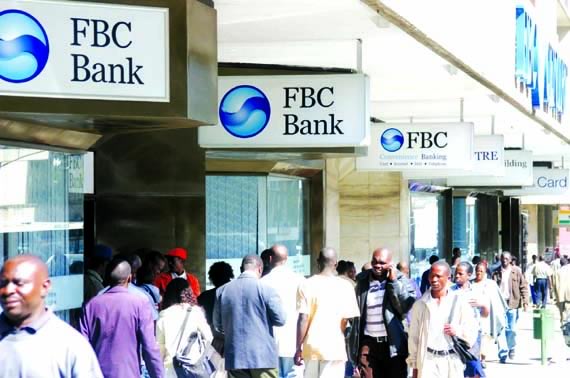
FBC Holdings Limited (FBCH)’s flagship arm, FBC Bank, has secured US$48 million lines of credit from regional financial institutions in a vote of confidence for the group, despite a cut back by lenders on its disbursements to Zimbabwe.
REPORT BY NDAMU SANDU
FBCH group chief executive officer, John Mushayavanhu told a meeting of shareholders last week that the bank had managed to draw down on an US$8 million facility from PTA Bank.
It will also draw down on a US$40 million facility from the African Export-Import Bank (Afreximbank).
“This is a real boost in confidence in this market because some of these regional and multilateral lenders had downsized or stopped doing business in Zimbabwe because they had lost money.
“The payment record of FBC has been so impeccable that they [PTA] did not have any reason to remove our facility,” he said.
The lines of credit will be used for on lending to other sectors of the economy.
Due to the short-term nature of deposits, banks have been finding it difficult to lend and attempts to seek foreign lines of credit have been frustrated by the country’s perceived country risk profile.
- Chamisa under fire over US$120K donation
- Mavhunga puts DeMbare into Chibuku quarterfinals
- Pension funds bet on Cabora Bassa oilfields
- Councils defy govt fire tender directive
Keep Reading
As banks were unable to lend, they resorted to generating most of its incomes in bank charges, commissions and fees (non-interest income).
Scrapping of bank charges to affect performance
A recent Memorandum of Understanding (MOU) between government and banks removed bank charges on accounts below US$800.
This means that banks’ sources of income had been affected as they are constrained to lend.
It is estimated that financial institutions stand to lose in excess of US$40 million in potential income from bank charges, after government reduced tariffs and fees.
Mushayavanhu said the bank would be affected by the MOU as the bulk of its clients fall below the US$800 per month salary.
He said this would affect the bank’s half year performance, despite being aggressive in opening new accounts and transactions.
“When you eventually see our results as at the end of June, you will see while there is this MOU, there has not been a significant reduction in fee income but there has also not been a significant growth in fee income despite the fact there has been a significant growth in the number of transactions that we are undertaking,” he said.
“Despite the impact of MOU that we signed with central bank, we see the group’s performance at half year being very much comparable to what we did last year. In fact, we are upbeat that we are going to exceed what we did last year at half year.”
Mushayavanhu said foreign investors were also knocking on their doors a sign that, “whatever we are doing, we are doing it right”.











